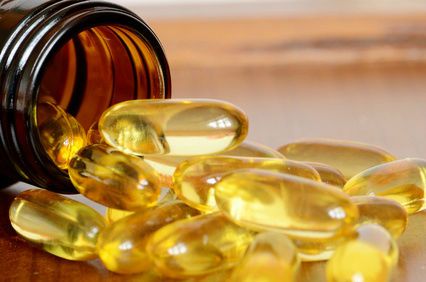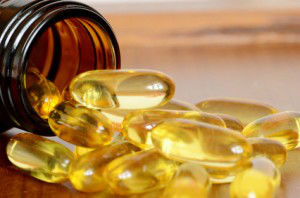
Vitamin D is an important compound of fat-soluble vitamins that include D1, D2 and D3. Unlike most vitamins that we obtain via the food we eat, vitamin D is unique in that our bodies can actually make it when exposed to the sun.
Along with regulating calcium and phosphorus absorption, which play a major role in maintaining strong bones, vitamin D also supports proper immune function, decreases the risk of developing certain autoimmune diseases such as multiple sclerosis, promotes a healthy cardiovascular system and can aid in the prevention of certain cancers.
While as little as ten minutes of daily sun exposure can provide you with plenty of vitamin D, for those who live in cold climates or work long hours that keep them indoors, supplementation can be useful to assure proper levels are met. Past research, however, linked vitamin D supplements with increased risk for developing kidney stones, leaving many shying away from this important nutrient.
But a recent study has changed doctors’ minds about supplementation. Researchers followed a group of over 2,000 participants of varying ages over the course of 19 months. During that time period only 13 reported developing kidney stones.
The study leader Cedric Garland, of the University of California, San Diego School of Medicine said, “Our results may lessen concerns by individuals about taking vitamin D supplements, as no link was shown between such supplementation and an increased risk for kidney stones.”
He noted that vitamin D levels of 40 to 50 nanograms per milliliter are thought to be required to substantially aid in disease prevention and those levels are generally achieved via supplementation.
However, while vitamin D supplements may not be to blame for this painful condition, there is mounting evidence that sugary sodas may be a significant contributor. A recent study followed over 194,000 people over the course of eight years.
After analyzing data, researchers found a 23 percent increased risk for developing kidney stones in those who just drank one sugary soda per day as compared with those who only consumed one per week. The study concluded that while fluid consumption generally decreases the risk, certain beverages, particularly those containing high levels of sugar, actually contribute to kidney stone development.
Other risk factors include:
- Family history
- Gender (men are more at risk than women)
- Age (risk increases over the age of 40)
- Obesity
- High-sodium diets
- Chronic dehydration
 To avoid developing kidney stones, eat a nutritious diet high in organic fruits and vegetables and choose water as your main beverage. But don’t skip the vitamin D supplements, especially if you are at risk for becoming deficient.
To avoid developing kidney stones, eat a nutritious diet high in organic fruits and vegetables and choose water as your main beverage. But don’t skip the vitamin D supplements, especially if you are at risk for becoming deficient.
-The Alternative Daily
Sources:
http://www.medicinenet.com/script/main/art.asp?articlekey=174642
http://www.mayoclinic.com/health/kidney-stones/DS00282/DSECTION=risk-factors
http://www.medicalnewstoday.com/articles/261027.php
http://www.healthline.com/health-slideshow/benefits-vitamin-d#4

